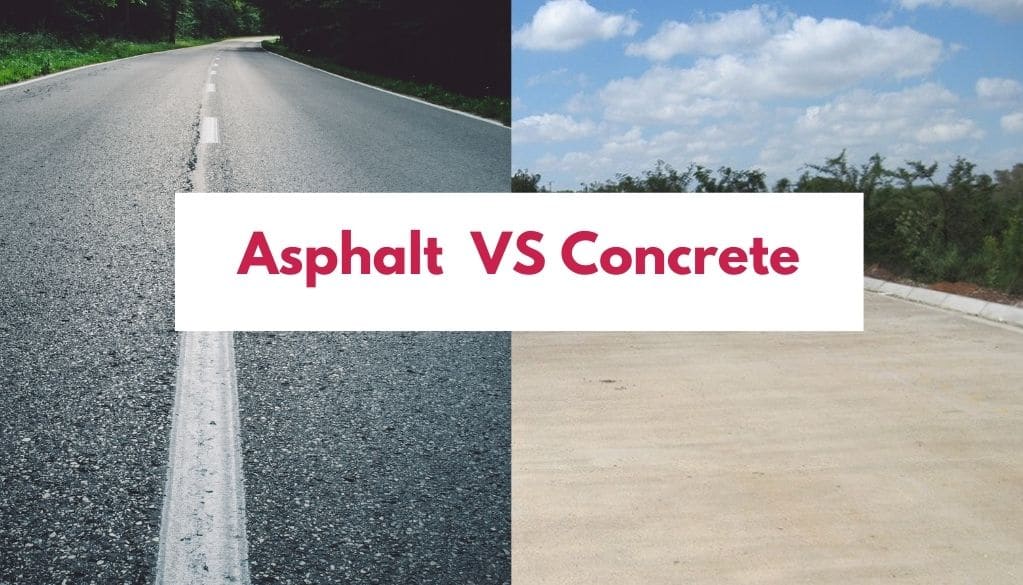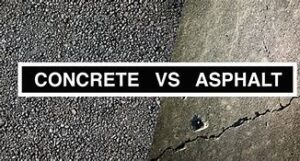These two concrete and asphalt materials used in most of our road infrastructures are sometimes confused, but yet very distinct …
At first glance, it’s easy to tell concrete and asphalt apart – they both look very different. However, what about their use?
In fact, asphalt is rather similar to concrete in its use and properties, except that instead of using cement, liquid tar is used as a binder.
In an article published on the Groh Concrete website, we can see that these two types of coating each have their strengths and weaknesses. The choice of material to use will then depend on the objectives sought. The site offers us a rather impartial and objective analysis. What are the advantages of one over the other, and vice versa? Let’s find out together.
Table of Contents
ToggleThe advantages of concrete
- Concrete pavement has a fairly long lifespan of 20 to 40 years on average.
- Concrete is 100% recyclable. The concrete aggregate is ventilated and used for other construction projects. In addition, concrete pavement can contain recycled materials such as fly ash or slag.
- It requires little repair and maintenance over time: only a few gaskets and annual cleaning are required.
- Concrete is environmentally friendly since the fuel costs for maintenance and repair are lower and this means reduced emissions, thus helping to preserve the environment.
- Concrete surfaces are much lighter in color, which helps reduce lighting costs.
- This material is ideal for new construction, new roads in urban areas, and the repair of underground installations and especially all areas exposed to the natural elements and wear over time.
The disadvantages of concrete
- Concrete is known to be less safe. In fact, vehicles tend to slide more on concrete pavements than on asphalt in rain or snow.
- Repairing a concrete road often involves replacing an entire slab, which increases repair costs.
The advantages of asphalt
- Building an asphalt road takes less time than a concrete one.
- Asphalt is also recyclable. It can be melted down and reused
- Asphalt, thanks to these flexible pavement mix designs can be adapted to the heaviest or lightest traffic areas. Some types of thick asphalt structures can last a long time and only require surface maintenance and are more suitable for rural areas.
- Asphalt pavement is smooth and quiet, ideal for modern high-speed roads. It also facilitates snow removal.
The disadvantages of asphalt
- Potholes are common on paved roads. Montrealers know it well!
- Asphalt requires recurring maintenance several times per season due to the tendency of materials to break down in freeze and thaw cycles. The cost of repair can therefore rise rapidly over time.
- Asphalt parking lots should be covered with liquid asphalt after a few years and should be completely covered every 10 years or less.
After we listed all the details about these two materials it comes down to situation and the funding opportunities. Each of these materials has advantages and disadvantages so it all depends on the specifics of your project, planning, and practical experience.







Leave a Reply
You must be logged in to post a comment.